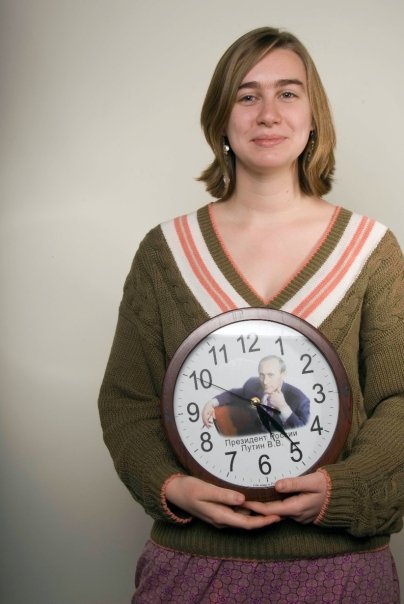(See: Part I)
Boris Yeltsin’s presidency was a garbage fire. He had five different prime ministers in the course of two years, and the last of these was Vladimir Putin. Putin was unknown to the public before this appointment, but he became acting president when Yeltsin resigned months before the March 2000 election.
One thing I find striking about Putin is that he has never participated in a presidential debate, even in the 2000 elections when he was a relative newcomer. Of course, he was already acting president and had the resources of state television and support from within the oligarchy. But it still shows an enormous amount of confidence and cunning to refuse to engage with other candidates on their level. And it seems to work better every year.

Russian opinion polls leading up to the election
This is how Putin relates to everyone. I see a similarity between Putin and Trump in that they both have the brashness and confidence to do and say whatever they want to. But whereas Trump does not seem to care or want to predict how others will react to him, Putin seems to take great pleasure in exploiting the constrained reactions of others to his actions. Trump makes decisions, people are outraged, and Trump gets right down in the dirt to fight with them, and then he moves on to his next debacle, leaving everyone so confused that consequences have trouble sticking. Putin, on the other hand, simply smirks at the outrage. Why argue when you’ve already won?
He annexed Crimea knowing full well that the West would have a hissy fit, but that they wouldn’t be able to take any meaningful action to stop him.
He casually mentioned, among many other possibilities, that maybe Jews were the ones who interfered in the 2016 US presidential elections, knowing that it would infuriate American liberals and journalists.
The only person who seemed briefly to get to Putin was Alexei Navalny, who became the opposition leader in Russia throughout protests beginning in 2009. However, Putin’s advisors eventually told him to stop mentioning Navalny’s name, in keeping with the general strategy of not dignifying the opposition with a response. Putin now responds to direct questions about Navalny in completely generic terms, even when being interviewed by Megyn Kelly for US television. Meanwhile, Navalny is on house arrest and barred from running in the elections.
This leaves the official opposition to be led by the Communist Party (whose leader, Gennady Zyuganov, called in 2010 for the “re-Stalinization of Russia”) and Vladimir Zhirinovsky (who has said so many outrageous things that it is impossible to pick out just one). In any case, Putin has won again, so he will continue to play his games for at least the next six years.

Portrait of the author with a clock bought ironically at a Moscow market in 2007
Clock shows Putin looking suave, with the caption “President of Russia Putin V.V.”
Photo by Hannah Samuell


